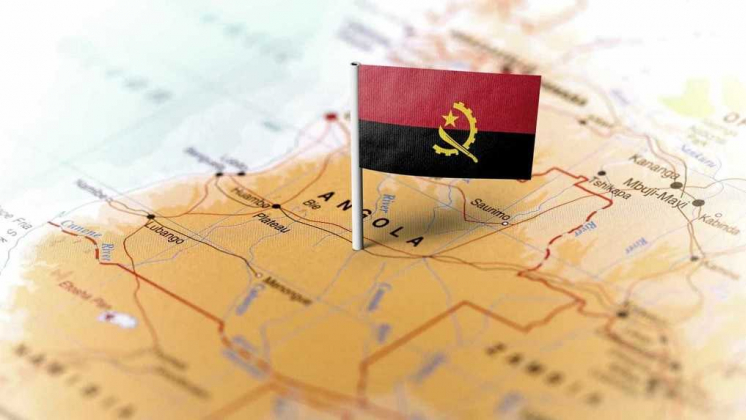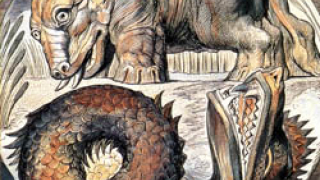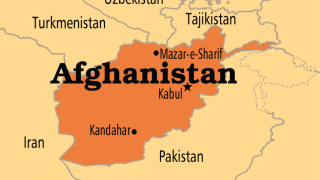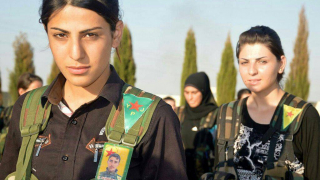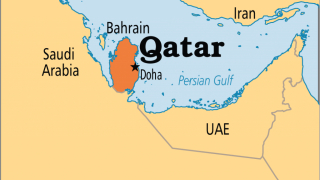Angola: history and geopolitics
The Republic of Angola is a state located in southwestern Africa. To the west it is bordered by the Atlantic Ocean, to the south it borders with Namibia, to the north with the Democratic Republic of Congo and to the east with Zambia. The predominant language of the population is Portuguese, used by 71% of the total population. Therefore, Angola is the second country in the world after Brazil, where the official language is Portuguese. This is due to the fact that Angola has long been a colony of Portugal. The colonial period begins in 1483, with the arrival of the Portuguese under the command of Diogo Cau. And only in 1974, after the war of independence, Angola received the status of an independent republic.
To clearly understand what kind of country Angola is, it is necessary to delve into the history of the region a bit. As archaeological finds show, the first people to settle in the region were the Bushman tribes. Today Angola is a multi-ethnic state. More than 110 ethnic groups live in Angola. Almost the entire population belongs to one language family - Bantu, which in turn is divided into many different groups.
According to the latest census, around 25 million people live in Angola. The number of inhabitants in the country continues to grow steadily, this is due to a higher birth rate than the death rate. Angola is a country with a medium level of urbanization, the main cities are Luanda, which is its capital, and Huambo, a large industrial center. The ethnic composition is as follows: Ovimbundu - 37%, Kimbundu - 25%, Bikongo - 13%, population of mixed origin - 2%, Europeans - 1%, others -22%. To date, the form of government in Angola is a presidential republic, characterized by a significant role of the president.
It is important to say that Angola has incredibly rich potential, first of all significant reserves of timber, diamonds, oil and fertile land, but the people of the country are still on the verge of poverty.
Although the death rate does not exceed the birth rate, it is still very significant. The population living in the country is in "inhuman" conditions. Angola is a country of contrasts; against the background of natural wealth, the social stratification and poverty of the main population can be observed.
As already noted, the Portuguese colonizers appeared in Angola in 1483. Gradually, the Portuguese took control of the entire coastal strip, through a series of successful wars in the 16th century. Angola was controlled by the Portuguese until the War of Independence from 1961 to 1974. Angolan guerrilla groups were formed: MPLA ("Popular Movement for the Liberation of Angola"), FNLA ("National Liberation Front of Angola "), UNITA (" National Union for the Independence of Angola "). MPLA was supported by the People's Republic of China by providing weapons. In 1961 the Cuban military arrived in Angola to train the partisan units. In addition, many of the MPLA members have received military training in several countries, including the USSR.
After the war for independence ended, a civil war broke out in Angola (1975-2000). The conflict took place between the factions formed during the war for independence. During the conflict, MPLA head Agostinho Neto turned to Cuba and the USSR for help. The heads of state responded promptly to the request. Cuban and Soviet support provided a significant advantage over the enemy in the face of the FNLA group. Subsequently, in 1991, the Lisbon Agreements between MPLA and UNITA were concluded. Elections were held in the fall of 1992 and the MPLA was declared victorious. Savimbi refused to admit defeat and demanded a second vote. As a result of the MPLA "Halloween Massacre" it killed tens of thousands of people, mostly members of UNITA, as well as the FNLA. After that, hostilities resumed with renewed vigor. And only on April 4, 2002 came signed a memorandum of understanding.
The geopolitics of Angola is determined by the directions of foreign policy, taking into account the geographical location, demographic and topographical characteristics. The most important feature of Angola's geopolitics is the existing relations with the countries of a single geographical area.
The foreign policy strategy of modern Angola was defined by the country's leadership when it was founded in 1975. The course was based on the principles enshrined in the 1975 constitution: friendship and cooperation with all states based on mutual respect for sovereignty and territorial integrity, non-interference in the internal affairs of each country and mutual benefit, as well as adherence to the principle of non-alignment.
It is worth noting the influence of the USSR on the political system of independent Angola. In the 1990s, the MPLA central party became imbued with the ideas of Marxism-Leninism, replacing them with the principles of "democratic socialism".
In 2010 Angola adopted a new constitution. The priority direction of Angola's foreign policy is "African policy", which in turn is divided into regional policies. To date, Angola is a member of the following organizations: UN, UNCTAD (United Nations Conference on Trade and Development), UNESCO, United Nations Industrial Development Organization, United Nations Food and Agriculture Organization , IAEA, etc. The main trading partners are: Russia, USA, Belgium, Portugal, Germany, France. It is worth noting that bilateral relations between the USSR and Angola were established on the day of the commemoration of the end of the war for independence in 1993. To date, there is close cooperation in the economic, political, technological and cultural spheres. between Angola and the Russian Federation. The main commercial turnover between Russia and Angola falls on "jewels". This is a key source of income for the country.
Angola's activities in the region are very significant. It actively participates in infrastructure development and conflict resolution in the region. The South African Development Assistance Community (SADC) is an important project for South Africa and Angola is making significant efforts to develop various projects in the community.
Therefore, the Republic of Angola plays a significant role in the African region. The country is also an important player in the global market for the sale of luxury goods (diamonds) and energy resources (oil). Angola is a country with the deepest potential thanks to its natural resources. However, a number of difficulties hinder the development of the state: a high death rate and a low standard of living.
Translated by Alessandro Napoli

